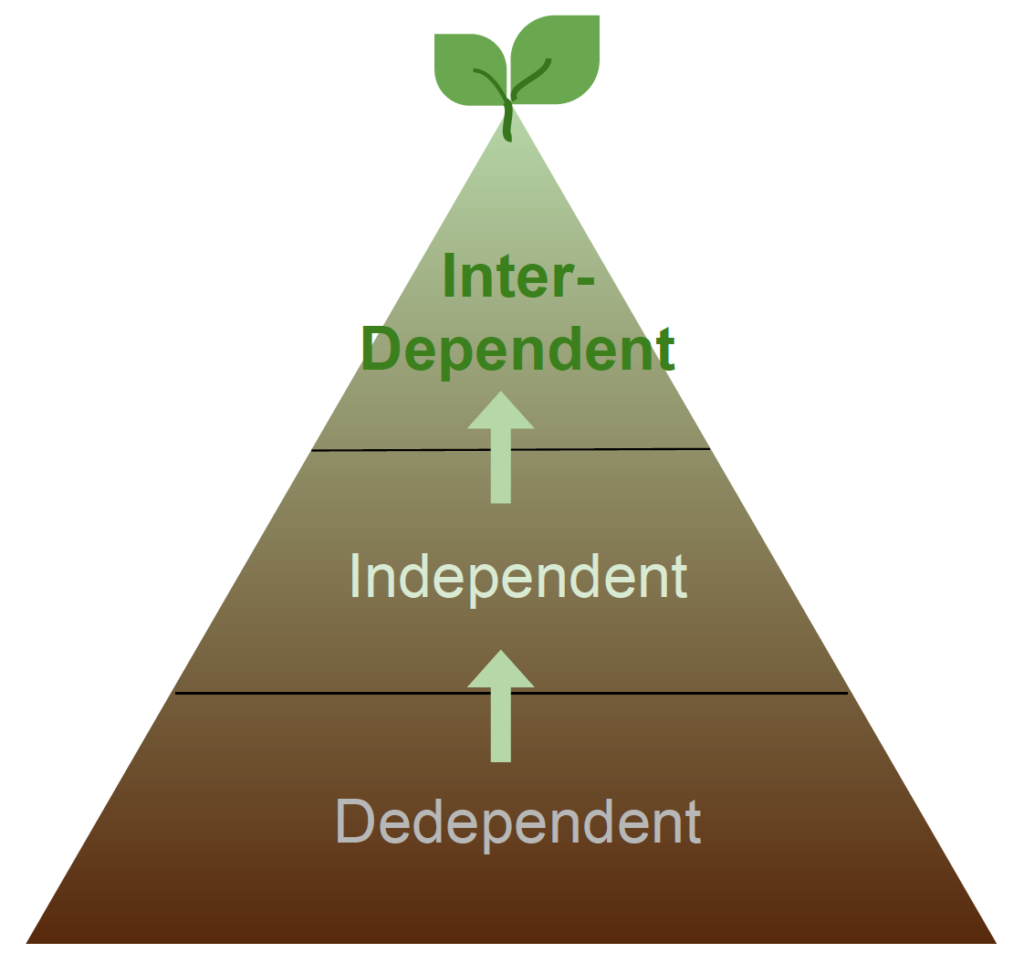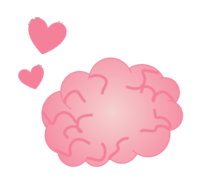Are we interdependent?
Hello self-determined learners!
Welcome to Midori’s Art of Psychology Lab!
This is my first post aiming to share helpful psychological concepts and principles while accompanying your lifelong learning!
My posts are heavily geared towards the real-world application of scientific research. I will be sharing my interpretation of academic publications as well as applied research articles and books. I genuinely hope this can help you make important decisions!
The honorable first topic is … “HAPPINESS & INTERDEPENDENCE,” yes! Great starting point while practicing the physical (social) distancing, isn’t it!?
QUESTION TIME!
Let’s start today’s reflection with some questions as Gregersen (2018), the executive director of the MIT Leadership Center, author, and a motivational speaker, suggests that catalytic questioning can lead us to the answers.
I will try my very best to come up with such “catalytic” questions!! No pressure…!
Would “true love” guarantee you the ultimate “happily ever after?”
Would “making more money” reassure you to live happier life?
Or …
Would “single life” or solitude bring happiness if it is a choice and not forced?
Can we lift the curse of the social comparisons in our heads?
If you have gotten crisp answers for the questions above, you may skip the rest of my post! Have a wonderful day and the rest of your life!
However, if you have some wiggle room in your answers, the info below can be beneficial in making future decisions such as whether you should heavily invest in a dreamy romantic partner, the highest paying job-related major at college, buying a brand-new T*sla car, etc…
Research suggests some potential “answers” regarding such external orientations of how to “achieve happy life.”
It suggests: YOU WILL NOT GET HAPPIER EVEN IF YOU KEEP GETTING THESE COOLEST THINGS.
Short answer from the research finding is, YOU MAKE CONNECTIONS WITH OTHERS → increased level of happiness being observed and measured.
To me, personally, “true love” sounds like a great candidate to live happy life. My financial freedom while having a choice where I want to invest in would be essential as well.
Evidently, my personal happiness and my husband are linked. Well… it is just really hard to solely focus on my “own” happiness without accounting for his happiness to be honest. This “intertwined” phenomenon posed more questions though.
Does my happiness depend on my husband?
If my personal happiness is really intertwined with my husband’s, then, where can I see the boundary between “my own” and “his” happiness…?
Wait. I am getting confused. You??
I have been both happily and interracially married to my adventurous Vietnamese American husband who is 8 years younger than me. On top of the salient age gap between us, our ethnic background, communication style, education, core strengths are … quite DIFFERENT. The list of our differences goes on and on… phew!
EXCEPT, we have something in common, we both seem to possess basic abilities to sustain our own lives without needing each other’s help.
He is the king of very basic. I am the queen of very basic. Each of us built own iron castle where nobody is needed but one’s self.
Of course, occasionally he sees me as an invader while I defend myself with the Kendo armour.
Nonetheless, I started understanding how “INTERDEPENDENT” relationship works after five years of “figuring out” thanks to the abundance of resources and patience (both in me and my husband as well as our family and friends).
In the process of exploration, I have found incredibly helpful checkpoints from all-time king-of-self-help book, The 7 Habits of Highly Effective People, New York Times bestseller (over 30 million copies sold!) to assess if I am dependent, independent, or interdependent (Covey, 1998).
Let me ask you some more questions since understanding the difference among dependence, independence or interdependence can help you observe your relationships with the significant others (or just others happen to be near you).
Q.1 Is “your happiness” depending on someone besides yourself (e.g., my partner, children, parents, friends, etc.)?
Q. 2 Are you an independent individual and you don’t need someone else to fulfill your basic needs (you are operating to the best of your abilities)?
If your answer is somewhat YES to these questions, it implies that you could be an interdependent person (yay!?).
However, if you answered that your happiness depends on others because you need these people to fulfill your basic needs, you might have some challenges with personal dependency.
The “dependency” in the context of happiness can be a bit tricky. Let’s take a closer look at the concepts together.

As illustrated in the image above, the dependency, independency, and interdependency can be hierarchical. In other words, without having lower level’s requirement being met, you cannot go up to the higher level.
→ Without achieving the adequate level of independency, you cannot be interdependent (ouch!).
Once you got the hierarchical part cleared up, let’s look into the other side of the spectrum, unhappiness.
The opposite of happy feelings can be negative ones, yes?
If you catch yourself frequently complaining (experiencing negative feelings) about someone who is important to you, and if you are holding that person responsible for your unhappiness, then you are likely “dependent.”
The good news is, such discontentment (negative feelings) has a function to call for your attention, and voila! you acknowledged these negative feelings that are bugging you (Carucci, 2020)!
Now, you are called for a change (another ouch!?)!
Please don’t worry! Here I am sharing resources to guide you create some changes for happier life!
Although you currently have some complains regarding your personal happiness, the questions below can help you analyze the complains and generate some solutions.
Please try answering the questions listed below to the best of your abilities (Carucci, 2020)!
Q.1 What do you wish was different about how things are now?
Q.2 Relative to these things, what are things that frustrate you most?”
Q.3 What self-management capability will you need to improve such status quo?
Q.4 What skill or knowledge will you need to improve or acquire?
Q.5 What goals can you realistically attain through your own efforts?
Q.6 What rewards do you hope to gain as a result of your efforts?
Q.7 What goals can you guide your team/organization to realistically attain?
Q.8 What rewards do those you lead hope to gain as a result of your efforts?
Congratulations! You took one step closer to be first independent and eventually interdependent!
As a renowned psychiatrist, Alfred Adler, states, an individual is “indivisible” or inseparable from being affected by the external world. In other words, it is inherently challenging for us to exclude the outside influence when trying to create changes (Skinner, n.d.).
In order to tackle these challenges, Alfred Adler offers the cognitive behavioral intervention called separation of tasks (Skinner, n.d.). Separation of tasks involves the identification of tasks and individuals who need to work on each task.
Identifying the tasks that need to be done by oneself and others can reduce likelihood of experiencing negative feelings significantly while helping people allocate their resources effectively.
First and foremost, we intuitively know that we would like to be self-reliant. We also learned that almost always, collective work brings better outcomes than the solo work.
Now, you are certain that being interdependent is the choice only INDEPENDENT people can make, and you can first choose to be independent.
Again, being independent = have a certain level of self-mastery.
At the end of the day, responsibility and independence are the keys to develop more satisfying and happier life, being interdependent by choice.
References
Carucci, R. (2020, April 13). How Ambitious Should You Be? Harvard Business Review. doi: https://hbr.org/2020/04/how-ambitious-should-you-be
Covey, S. R. (1998). The 7 habits of highly effective people. Provo, UT: Franklin Covey.
Gregersen, H., 2018. Questions Are The Answer. [online] Hal Gregersen. Available at: <https://halgregersen.com/books/questions-are-the-answer/> [Accessed 10 August 2020].
Skinner, J., n.d. Certificate In Adlerian Counselling | Adler Centre: Adlerian Psychology Association Of BC. [online] Adlercentre.ca. Available at: <https://adlercentre.ca/the-alfred-adler-institute/certificate-in-adlerian-counselling-certified-adlerian-counsellor-cac/> [Accessed 10 August 2020].

hello world!
What a beautiful reflection, Midori!
Dr. Praslova,
Thank you for the continued support and encouragement even though my post still has a long way to go!